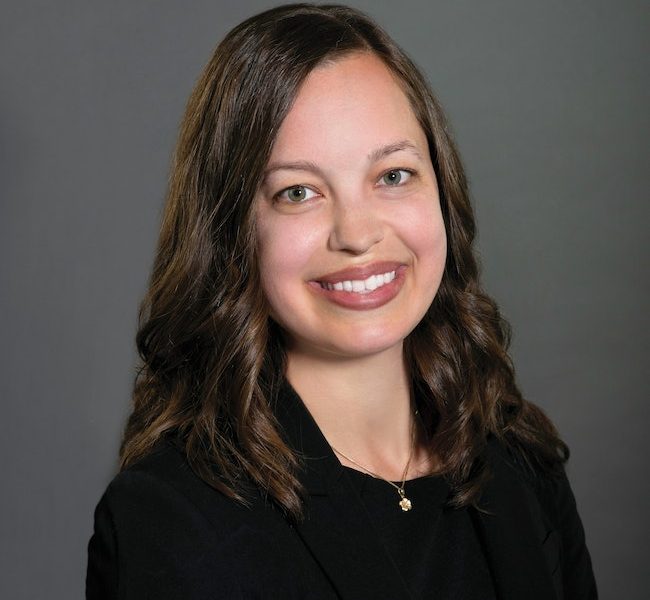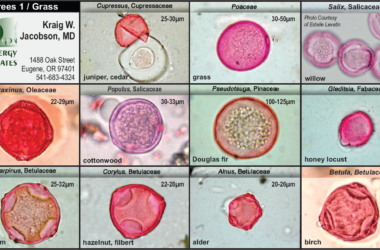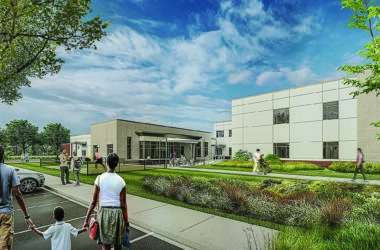 Parker
Parker
Ensuring good health is easier than ever these days, and many testing procedures are less distasteful than ever.
People already enjoy the benefits of receiving life-sustaining medicine delivered to their front door. At-home test kits provide convenience, privacy and, in some cases, dignity.
So the increasing at-home medical testing trend seems tailor-made for early screening of colorectal issues. Thankfully, doctor-approved at-home test kits have improved and that’s made for a better overall experience.
“Those are options available to a primary care provider and they can be a good first step,” said Dr. Maile Parker, who practices the full spectrum of colon and rectal surgery at McKenzie-Willamette Medical Center in Springfield. “Especially for those who are more wary of a colonoscopy.”
Parker is a Tacoma, Wash., native who earned her medical degree at the University of Washington School of Medicine in 2013. After that, her academic and professional credentials include medical school, an internship, a residency, and a fellowship at the Mayo Clinic in Rochester, Minn.
She is trained in robotic surgery, and said she applies a minimally invasive approach to most abdominal operations. Parker’s bio states she enjoys traveling, hiking, and gardening in addition to spending time with her husband and dogs.
“I’m from Washington state, so being close to home was one reason for coming back to the Northwest where I can get to a mountain or get to the beach,” she said, calling herself a “moderate-level” hiker. “My husband and I really want to do Rainier; we have a little bit of regret over growing up in Tacoma and never climbing Rainier. That’s on the list.”
At the top of her health-care list during March – designated Colorectal Cancer Awareness month – is trying to “emphasize the importance of screening … the importance of not delaying evaluation for any warning signs and symptoms.”
Three years into a pandemic, this special attention is needed more than ever, she said. Pandemic-related issues have dominated resources, priorities, and headlines the past two years. Generally, 40% of people delayed treatment within the past year due to Covid.
Colorectal cancer is the second-leading cancer killer in the U.S., and affects men and women. There are many risk factors based on personal or family history, and the risk increases as we age.
The March spotlight is a valuable opportunity to educate residents about these diseases and promote awareness of the importance of colorectal cancer screening, prevention, and treatment, she said.
Symptoms can be tough to self-diagnose, so seeing a primary care provider is important. “Colorectal cancer is often asymptomatic, when incidents are at early and treatable stages. So the importance of the colorectal cancer screening program can’t be overestimated,” Parker said. “In terms of symptoms that should prompt somebody to get attention: Definitely a change in the bowel habits, like constipation or diarrhea that’s new and persistent; abdominal pain is a symptom but not that common; and blood in the stool. All are red flags, as well as unexplained weight loss.
Historically, colon cancer screening was offered to people 50 years and older. Recently, the U.S. Preventive Service Task Force lowered the screening age to 45 in response to that increasing incidence in younger people. And so what that screening means is anybody regardless of symptoms, or who reaches the screening age, is eligible and should be offered a screening test which can include a colonoscopy, or can include a stool based test.
Colonoscopies are still an important tool, Parker said. “If any of those (at-home) tests are positive, the confirmatory test is still a colonoscopy.”
Parker noted several improvements in the process. “Number one, we’re getting better at sedation. The anesthesia nowadays is more comfortable than prior types of anesthesia. We’re using a different type of gas to (inflate) the colon that’s more easily absorbed and it’s more comfortable. And also the colonoscopy prep is more tolerable – the stuff that you have to drink. So that’s breaking down some barriers and making it an easier experience for people to go through.
“In general, there should be minimal recovery time from a colonoscopy and most people are back to their usual activities the next day,” she said.
While this is her area of expertise, Parker knows that certain medical conditions are rarely discussed, even among intimate partners. And that makes accurate information and awareness even more important.
“Yeah, absolutely, especially with a colonoscopy,” she said, “some people feel embarrassed about the idea that their providers are going to be seeing their bottom, or that they will make a mess in front of people due to colonoscopy prep, that type of thing. And then just the barrier of having to talk about those things and being asked about their bowel habits and all of that. That can certainly be a barrier to a lot of people.” Including her grandmother.
“For example, my grandmother is in her 90s and she never ever had a colonoscopy and says she never will. She says colon cancer can take her,” Parker chuckled. “So modesty and those concerns are a big deal for a lot of people. It can be helpful to start with one of the stool-based tests for people for whom embarrassment is a big deal. I just always do my best to normalize it and make it easy and even make it a little humorous in the room and people seem receptive to that.”
There is good news to report, too.
“Since the 1990s, the survival rate for those diagnosed with colorectal cancer has been improving. But the overall rate, especially in younger Americans, is increasing, especially for rectal cancer.” While the reasons aren’t completely understood, she said, “it’s likely to be dietary and environmental factors. Certainly, diets high in animal products, especially red meat, are a risk factor. Obesity is a risk factor. Smoking is a risk factor. And obviously genetics.”
Parker said the best “first step” is seeing a primary care provider. “Those folks have good judgment about when to promptly send somebody to a specialist or when to start with rectal screening and that type of thing. Generally, there’s pretty good access in communities, including this one,” she said, referring to the southern Willamette Valley.
Colorectal cancer might not make for polite dinner conversation, but it’s a critically important subject. Parker embraces the challenge.
“Yeah, I think it’s one of the fun parts and one of the privileges of the specialties to be able to talk about things that are uncomfortable, and have it be routine for me and then make it easier on people.”







